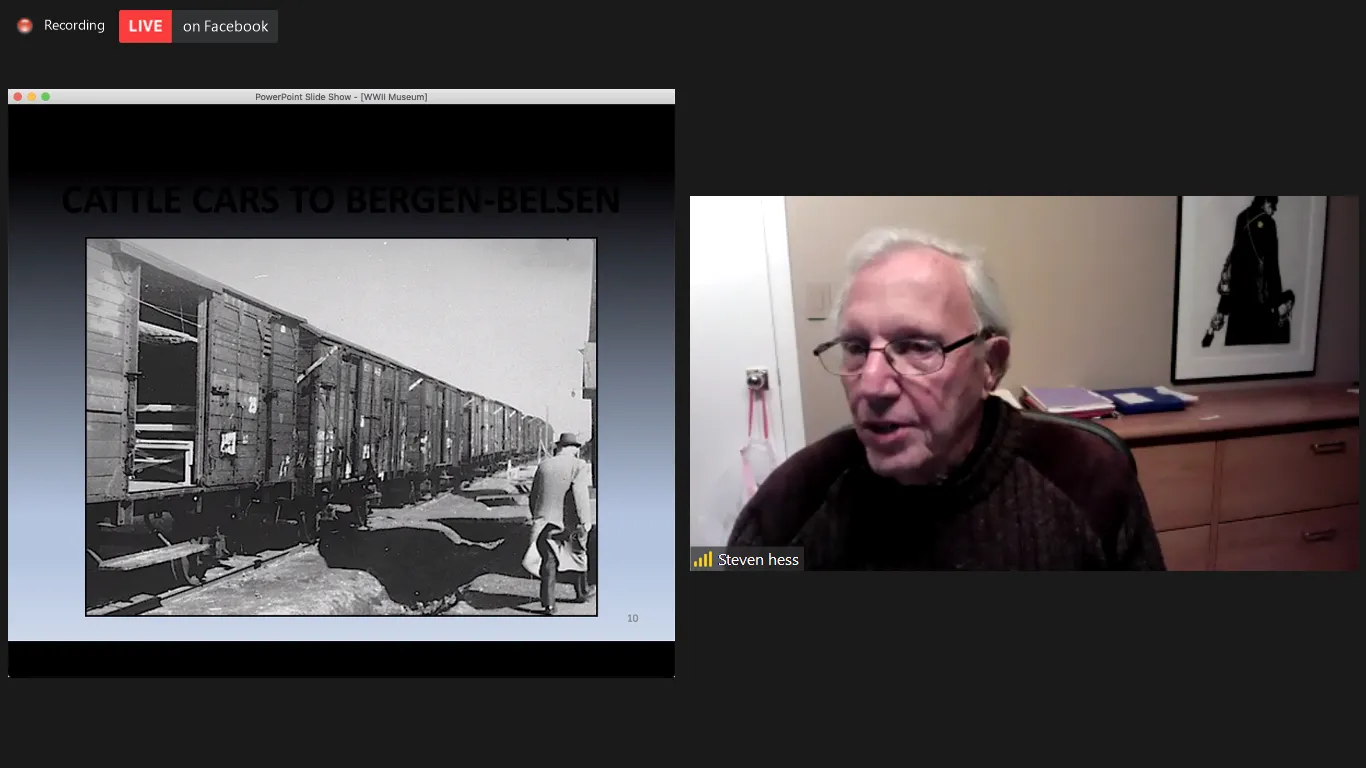Content Warning: This article contains descriptions of the violent atrocities of the Holocaust.
To commemorate Yom HaShoah, the annual day of Holocaust remembrance in the Jewish community, IC Hillel hosted Holocaust survivor Steven Hess for an open Q&A session on April 6. A renowned speaker and scholar, Hess shared his memories of the two years he spent in Nazi concentration camps and spoke about the future of Jewish voices in the United States.
Born to a successful family in Germany, Hess and his twin sister Marian were 5 years old when their family was deported to the Westerbork transport camp, and later to Bergen-Belsen concentration camp. Although his parents had emigrated to Holland after the rise of the Nazi Party in 1939, the family could not escape scrutiny. Hess’s earliest memories are of the widespread death, sickness and starvation that he saw daily, but for years he had no context of the events around him.
